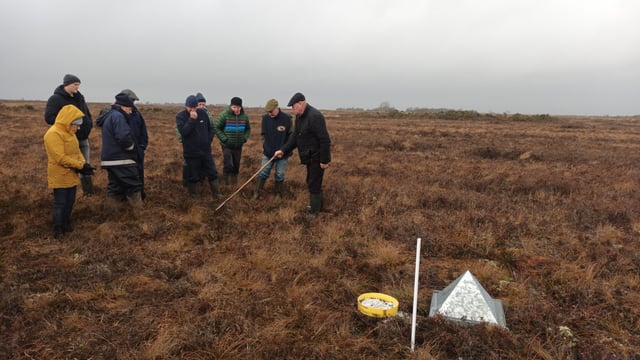Farmers importing slurry reminded to check eligibility
Teagasc has reminded farmers who are considering importing slurry to access their soil nutrient requirements against slurry import rules.
In a recent post on it's website, Teagasc's Louise Clarke outlined that it is important that farmers are aware of the maximum amounts of slurry they can import, in order "to avoid potential cross-compliance breaches, as well as environmental concerns".
The responsibility for the management of fertiliser and soil nutrient levels on a farm rests with the “occupier of a holding”.
January 2023 saw a number of new rules and changes to existing rules which affected more livestock and tillage farmers in relation to nutrient management when importing slurry, spreading slurry and buying compound fertiliser.
A document entitled 'European Union Good Agricultural Practice for Protection of Waters Regulations 2022 Statutory Instruments S.I No. 113 of 2022' outlines these new rules and rule changes.
The Teagasc post outlined the new soil testing requirements as follows:
- From January 1, 2023, all farms with a grassland stocking rate above 130kg N/ha and all arable land, must complete soil tests for Phosphorus (P). Without a completed soil test, a soil P index 4 is assumed. Parcels with soil P index 4 cannot accept any organic manure applications (except if potatoes, beet or maize are being grown);
- If the stocking rate is less than 130 kg N/ha and no soil test is done, farmers must assume a soil P index of 3;
- Soils with more than 20% organic matter (often referred to as 'peaty soils') shall not exceed the P allowance for Index 3 soils;
- Only parcels that are shown to be Index 1-3 are eligible to import organic manure;
- Soil tests must be completed at least once every four years with a maximum area per soil test of 4 hectares (9.9ac).
According to the regulations, low emission slurry spreading (LESS) must be used for the application of slurry produced solely by pigs on any holding.
Teagasc explained that soil test results will provide farmers with "the basis for nutrient advice for a number of years until soils are resampled".
The farm advisory body suggested that "all farmers should take soil tests and have nutrient management plans drawn up for their farms if they want to optimise crop growth (grass or tillage crops) on their farms".
If a farmer is using pig slurry, doing a nutrient management plan early in the year may help ensure they do not use unnecessary chemical phosphorus which will reduce the amount of pig slurry they may obtain.
"Farmers need to plan ahead to get the best out of using organic fertilisers such as pig slurry to save them money."
The post also outlined that 1,000g of pig slurry is worth €32 to farmers in nutrient terms.
Farmers can click here to view more information on the average nutrient and monetary value of various different organic fertilisers and manures.
With the spring slurry-spreading season set to get busy off when ground conditions improve, farmers and all staff working with slurry are being reminded to take the time to assess farm safety.
PTO shaft covers should be checked to ensure they are not broken. Open slurry tanks should not be left unattended and farmers are being reminded to 'evacuate and ventilate before you agitate'.





